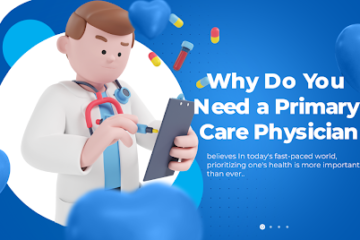Your eyes do more than just help you see-they play a big role in your overall well-being. Eye health can be linked to other health conditions, such as diabetes, heart disease, and even mental health. By taking care of your eyes, you’re also supporting your body’s overall health.
In this article, we’ll explore how eye health connects to general well-being and why regular eye check-ups are essential.
How Eye Health Reflects Your Overall Health
Many systemic diseases show early signs in the eyes. For example:
Diabetes
Diabetic retinopathy is a condition where high blood sugar damages the blood vessels in the eyes. It can lead to vision loss if untreated.
High Blood Pressure
Hypertension can cause changes in the blood vessels of the retina, leading to blurred vision or even serious eye conditions.
Autoimmune Disorders
Diseases like lupus or multiple sclerosis can cause inflammation in the eyes, leading to discomfort and vision issues.
A simple eye exam can sometimes detect these conditions before other symptoms appear.
The Impact of Eye Strain on Daily Life
In today’s digital world, many people experience eye strain from prolonged screen use. Common symptoms include:
- headaches
- blurred vision
- dry or irritated eyes
- neck and shoulder pain
To prevent these issues, follow the 20-20-20 rule: Every 20 minutes, look at something 20 feet away for at least 20 seconds.
The Role of Eye Dilation
Eye dilation is a common part of an eye exam, where doctors use special drops to widen the pupils for a better view of the retina. This process can cause blurry vision and light sensitivity for several hours.
So, can you drive after eye dilation? Most eye doctors recommend having someone else drive you home, as your vision may not be clear enough to drive safely. Wearing sunglasses can also help protect your eyes from bright light during this time.
Eye Health and Mental Well-being
Good vision is closely linked to mental health. When people struggle with vision problems, they may experience:
- increased stress and anxiety
- reduced independence in daily activities
- lower quality of life
Regular eye exams can help maintain vision and prevent unnecessary stress. If you notice changes in your eyesight, seek professional help to address issues early.
Tips for Maintaining Healthy Eyes
Taking care of your eyes is easier than you might think. Here are some simple steps:
Get Regular Eye Exams
A professional eye exam at least once a year can detect issues before they become serious. If you have conditions like diabetes or a family history of eye problems, more frequent checkups may be necessary.
Eat a Balanced Diet
Nutrients like vitamin A, omega-3 fatty acids, and lutein help maintain eye health. Foods like carrots, leafy greens, and fish are great choices for supporting good vision.
Protect Your Eyes
Shield your eyes from UV rays with sunglasses, wear safety glasses when necessary, and take breaks from screens to reduce strain.
Stay Hydrated and Rested
Dry eyes can result from dehydration and lack of sleep. Drinking enough water and getting at least 7-8 hours of sleep each night can keep your eyes refreshed and healthy.
Take Action for Your Eye Health
Your eyes are an essential part of your overall health and well-being. By scheduling regular eye exams, eating a nutritious diet, and protecting your eyes from strain and injury, you can maintain good vision and detect potential health issues early. Don’t wait until a problem arises proactive steps today to keep your eyes and body in top shape!



